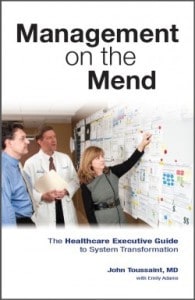
At this year's Lean Healthcare Transformation Summit (see my summary here) Dr. John Toussaint talked about and introduced his newly released book Management on the Mend, a follow up to 2010's On the Mend. Summit attendees received a copy of the book, so they're the first to have a chance to read this important work.
The book can now be ordered through the ThedaCare Center for Healthcare Value and it shows “In Stock.” It's now available in Kindle format through Amazon.com.
You can watch a recorded webinar featuring Dr. Toussaint discussing the transformation model or download a printable PDF information sheet about the book.
I've had the chance to read an early copy and I'm enjoying the book very much so far through the first six chapters. Whereas On the Mend told the story of ThedaCare's Lean journey up to that point, the new book sketches out a generalized Lean transformation model and roadmap that draws on lessons from ThedaCare and other hospitals, including those that are members of the Healthcare Value Network.
The table of contents:
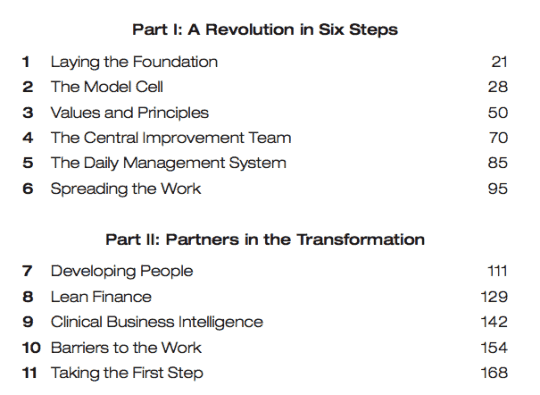
John emphasizes the need to move beyond specific Lean tools and isolated projects and events to engage everybody, from front-line staff to senior leaders, in a personal and organizational transformation. I like John's advice to start with a “model cell” that focuses on a key problem or value stream in one part of the organization. It's better to get some results and solve a problem that matters… building upon that success rather than spreading one's efforts too thin and not having much of an impact.
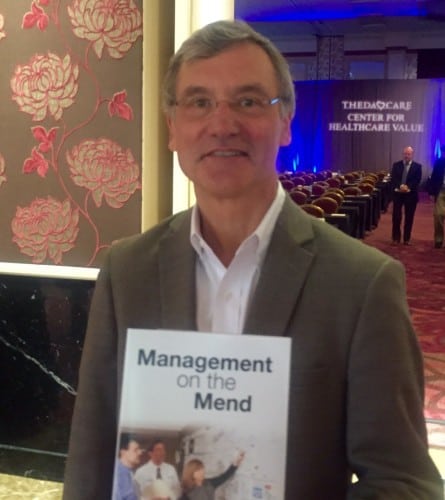
I'd like to share a few short excerpts below, things that stood out to me in early chapters.
On the idea of organizations being spread too thin and not having enough focus… he frames it as an overburden and a violation of the “respect for people” principle from Toyota and Lean.
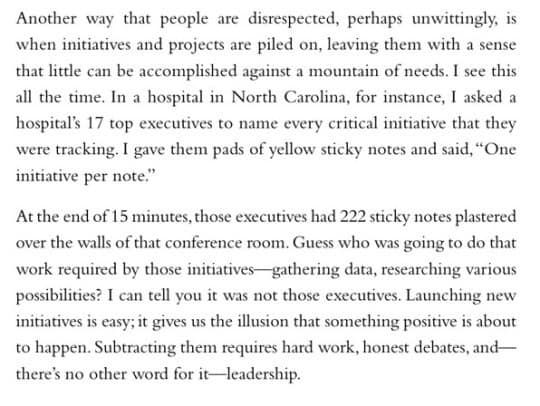
John also takes what might be a contrarian view about Return On Investment (ROI). I agree with him that we can't just focus on dollars and cents… we need to look at other measurable impacts. Note he's not saying “don't measure anything,” he's saying to look at a broad set of goals and measures. Don't allow yourself to be limited by a narrow ROI focus.
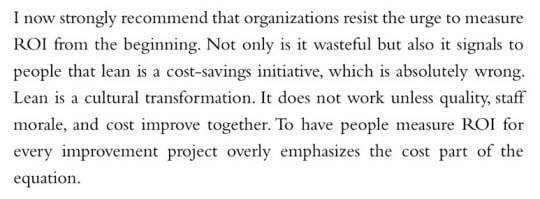
And on the topic of safety huddles at ThedaCare:
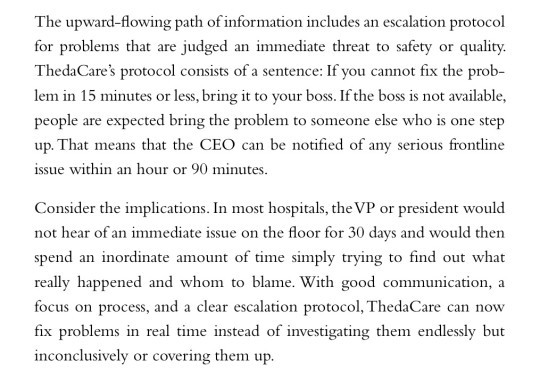
That's such a striking contrast in approach:
- Old way: Long delays (30 days), blame a person
- New way: Minimal delay (90 minutes), look at the process & systems
I think you'll find it to be very helpful book. Buy copies for your executive team!
I'll be recording a podcast with John late next week. If you have any questions for him about the book or in general, let me know.
Listen to Mark read this post (learn more & subscribe):
Please scroll down (or click) to post a comment. Connect with me on LinkedIn.
Let’s work together to build a culture of continuous improvement and psychological safety. If you're a leader looking to create lasting change—not just projects—I help organizations:
- Engage people at all levels in sustainable improvement
- Shift from fear of mistakes to learning from them
- Apply Lean thinking in practical, people-centered ways
Interested in coaching or a keynote talk? Let’s start a conversation.






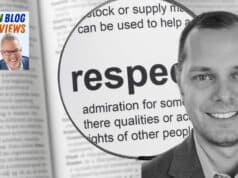

![When Was the Last Time a Leader Around You Admitted They Were Wrong? [Poll]](https://www.leanblog.org/wp-content/uploads/2025/07/Lean-Blog-Post-Cover-Image-2025-07-01T212509.843-100x75.jpg)

Dr. Toussaint advocates starting with a model cell and a real problem. Other Lean transformational experts say start with strategic deployment which implies impacting the whole organization. These two approaches seem at odds with each other. Is the difference in approach situational? Does one approach work better for large healthcare organizations?
Good question, Bart. I’m not sure how many health systems would take the leap into strategy deployment without first demonstrating and seeing, first hand, that Lean is beneficial in some way. Strategy deployment is pretty radically different and requires a good understanding of PDCA/PDSA, discipline, etc.
If somebody is promoting “start with strategy deployment,” I’d be surprised if that were accepted anywhere. I’m not saying it’s a bad idea… I just don’t imagine some hospital CEO making that leap of faith.
[…] In particular, see Toussaint’s new book Management on the Mend and his “roadmap” for improvement. […]
Got the book and started reading. Dr. Toussaint’s insights are most valuable but I do have some questions.
The first is he advocates for a Lean Program Office model, is this really necessary?
It seems that if leaders (managers) really get this stuff then the leader of an area should be the one that is facilitating the local transformation.
On the other hand, is Dr. Toussaint’s position based on the need to accelerate the process of change?
Or, is the complexity of managerial activities in healthcare such that it is not possible for a leader to do this on their own and this is a way to address?
Or, some other reason?
Thanks for asking. I’ll try to get some thoughts from John.
I think a Lean Promotion Office or something like that is very helpful. Is it really necessary? Maybe not, but I think you need a place for coaches and people with expertise to serve as internal consultants…. not “doing it for them” but helping leaders in other departments.
An LPO probably shouldn’t be a permanent group, once you have a “Lean Culture” or at least scale it back. Toyota still has internal groups who serve as TPS coaches and owners of the training and standards.
[…] Joining me once again on the podcast today is John Toussaint, MD, the founder and CEO of the ThedaCare Center for Healthcare Value. We’re talking about his latest book, Management on the Mend (read my blog post about my first thoughts about the book). […]
Here is a review and summary by my friend Paul DeChant, MD, MBA, a former hospital CEO:
SEE LINK
[…] writes about this approach in his latest book Management on the Mend (read my blog post about my first thoughts about the book and listen to my podcast interview with him). We’re going to do another podcast specifically […]